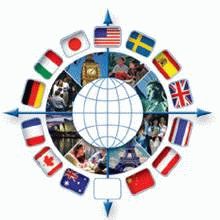When the Foreign Educational Institutions (Regulations of Entry and Operations) Bill was introduced in Parliament in 2010, no less than 50 foreign universities evinced interest in setting up operations in India. Two years down the line, their interest seems to have dwindled, and the reason is not hard to fathom — the Bill is still gathering dust. “Delay in passing the Bill has affected sentiments. People no longer come to us showing interest to be part of the Indian higher education system,” said an official of the Ministry of Human Resource Development (MHRD).
“Earlier, we would receive about 10 enquiries from foreign players a month; nowadays, we hardly get any. There is a limit to which people can wait. And people who mean business will certainly not hold on for ever,” added another ministry official. MHRD officials said following the standing committee’s recommendations on the Bill, the ministry had finalised its view. However, it is holding on till some of the other Bills get through.
“We do not know if the plans of foreign players still stand. It is the overall atmosphere that matters. Besides, right now we are not worried about the interest of foreign players. The priority is passing the Bill,” the officials said. Several international education institutions, including Massachusetts Institute of Technology, Yale University, Virginia Tech, Columbia University, University of Southern California and University of Alabama, had earlier expressed interest to have an India presence.

Meanwhile, the MHRD has reviewed certain clauses in the Foreign Education Providers (Regulation) Bill to attract more overseas institutions looking to set up shop in India. The recommendation by the standing committee has led to a revision in the minimum corpus of Rs 50 crore for a foreign institution to set up campus in India. However, the corpus will not be Rs 50 crore for every institution as envisaged earlier. Instead, the corpus will be based on certain classifications. For instance, for engineering, vocational and other programmes, it could be less than Rs 50 crore whereas for medical programmes, the corpus could be more than that, which the health ministry will decide.
The norms have been tweaked after education institutions, including community colleges, vocational training institutions, professional colleges, general education institutions and medical institutions had expressed interest in setting up operations. The Ministry of Human Resource Development will also review the pre-condition that stipulates that a foreign education institution can’t utilise more than 75 per cent of the corpus fund towards development of the institution in India. The ministry might allow these institutes to invest the surplus in growth of the institution after a certain lock-in period.
“A clause in the Bill said you create a corpus, which will see an accretion. But at no point will the institutes be able to utilise more than 75 per cent for development of the institution. Besides, no part of your revenues can be repatriated. You can, however, use 100 per cent of the same for further investment on the institute,” explained an official. Several important Bills, such as the Educational Tribunals Bill, Foreign Education Institutions (Regulation of Entry and Operations) Bill, 2010, and National Council for Higher Education and Research, 2011, among others, are still pending before Parliament. MHRD is hopeful that some Bills will be passed in the forthcoming winter session.
(Courtsey- Bussiness Standard)












 Now, for the first time, overall growth of MBA education is negative in the books of the All India Council for Technical Education (AICTE). In 2011-12, 146 new B-schools came up and 124 that were already running closed down. This year so far, 101 management colleges have closed down, only 82 have started.
Now, for the first time, overall growth of MBA education is negative in the books of the All India Council for Technical Education (AICTE). In 2011-12, 146 new B-schools came up and 124 that were already running closed down. This year so far, 101 management colleges have closed down, only 82 have started. 





 The students will work in companies from several industries like renewable energy, water and clean technology, food processing, infrastructure, automotive, education, oil and gas, biotech, tourism and ICT. “The students will work in areas of marketing research, production process changes, access to finance, HR & organizational issues. They will also do research on issues related to Indo Canadian trade like why are Indian companies slow in investing in oil sands in Canada as compared to Chinese companies, how to take the US$ 5 billion trade between India and Canada to US$ 15 billion by 2015, provincial mapping of clusters between India and Canadian provinces etc,” said Jagat Shah, chairman of ICBC.
The students will work in companies from several industries like renewable energy, water and clean technology, food processing, infrastructure, automotive, education, oil and gas, biotech, tourism and ICT. “The students will work in areas of marketing research, production process changes, access to finance, HR & organizational issues. They will also do research on issues related to Indo Canadian trade like why are Indian companies slow in investing in oil sands in Canada as compared to Chinese companies, how to take the US$ 5 billion trade between India and Canada to US$ 15 billion by 2015, provincial mapping of clusters between India and Canadian provinces etc,” said Jagat Shah, chairman of ICBC. 











